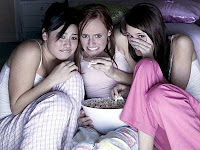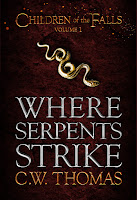But, to be frank, I never thought any of his work was that great. Even as a teen I got to a point where I couldn’t figure out why his books were so popular, and I thought, “You know what, I don't like these books. Why am I reading this?" From Carrie to It to Pet Sematary to Thinner, I thought King’s books were boring, wordy, unscary, and forgettable.
But that's not my beef with him. There are plenty of awful writers out there, and I just don’t bother reading them. But with King it’s different.
You see, he wasn’t all the rage when he first started writing. Throughout the early parts of his career, King was dogged by critics who called him out for his genre-specific, “popular” literary stylings, even as he was selling millions of books annually.
In the early 80s, The Toronto Globe called his novel Carrie "a clumsy experiment." The Los Angeles Times called Cujo "Paws" instead of "Jaws," saying, ‘[the book] doesn't work." In 1983, the same year that Christine and Pet Sematary were published, an essay in the Times suggested it was a slog for reviewers to read King's work, saying they would rather just have a beer with him than read his books. In 1986, the Times said, "Where did Stephen King, the most experienced crown prince of darkness, go wrong with It? Almost everywhere."
In 2003, King won the National Book Foundation’s award for distinguished contribution, and Boston.com writer and Yale professor Harold Bloom let the world know that giving King the award was wrong. He said it was “another low in the shocking process of dumbing down our cultural life.”
A recent article in The Huffington Post said King can’t write. The author, Michael Conniff, an instructor and writer himself, said Stephen King’s broad-stroke descriptions are actually hurting his work.
In an article in Salon, Dwight Allen from the LA Review of Books asked why is Stephen King so beloved? Allen dissected a bunch of his books and came to the conclusion that King is overrated as a writer and as a storyteller. He argued that sales do not translate to excellent writing, and questioned some publications that wrote glowing reviews of King's body of work.
So why is he so popular?
I think King’s saving grace was Hollywood. His books, though poorly written, were edgy, and edgy is always what catches the attention of Hollywood. Once movie makers started turning his books into feature films the Stephen King bandwagon really took off. Remember those two-night Stephen King television "events"—It, The Langoliers, Storm of the Century? When those mini series became trendy people assumed some literary masterpiece had landed on earth and they started they eating his books by the trough full.
And then King's popularity began to overshadow his shortcomings as a writer.
When King published the seventh volume of his Dark Tower series, The Washington Post gave it a gushing review, saying it was “a humane, visionary epic and a true magnum opus.” The New York Times listed his JFK assassination novel 11/22/63 one of "The 10 Best Books" of the year.
Ultimately, I don’t think the quality of King’s work stands up. In fact, I think it’s downright awful. For a guy who has taught English for much of his career, who had given lectures and written books about the importance of story, he spends a good deal of time drowning his stories in words.
But what do I know? King has sold over 350 million books so he is obviously doing something right. Readers have voted with their wallets, and they have crowned King… king. I’m glad that a fellow author has found success, I just wish it could be for the quality of his work and not because he won a popularity contest.
What do you think? Is Stephen King overrated?








































